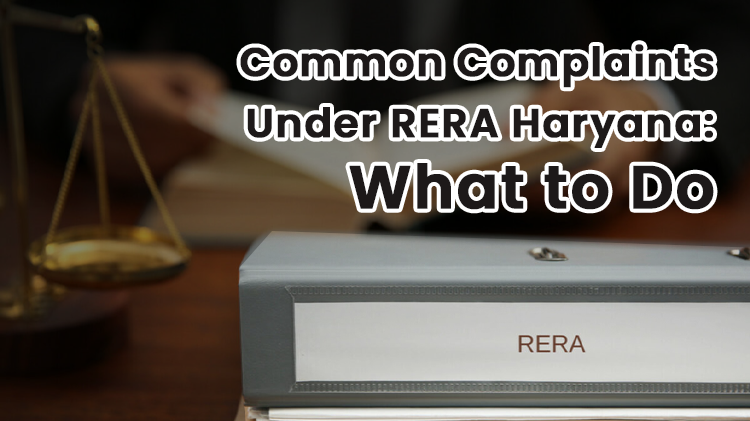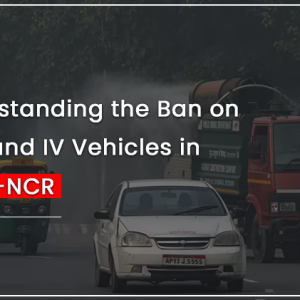In order to improve accountability, efficiency, and openness in the real estate industry, India adopted the Real Estate (Regulation and Development) Act, or RERA, in 2016. For buyers, RERA has changed everything by providing them with protection from dishonest tactics used by developers and builders. RERA is becoming a crucial instrument in Haryana for resolving complaints about real estate deals. But for many, it can be intimidating to comprehend the typical grievances under RERA Haryana and know how to resolve them.
This blog examines the most common grievances brought under RERA Haryana and offers a comprehensive how-to for dealing with comparable problems.
1. Delay in Possession
The delay in obtaining ownership of property is among the most often reported violations under RERA Haryana. When investing their hard-earned money on a home, buyers frequently anticipate prompt delivery; yet, many end up having to wait years after the stated possession date.
What to Do:
• File a Complaint: You can contact the Haryana Real Estate Regulatory Authority (HRERA) to lodge a complaint if the builder does not deliver the property on schedule.
• Seek Compensation: You are qualified for reimbursement for the delay under RERA. For each month that there is a delay, the builder might have to pay interest on the amount you have already paid.
• Legal Recourse: You may pursue additional legal action through the Real Estate Appellate Tribunal if the developer disobeys RERA’s directives.
2. Unregistered Projects
All real estate developments are required under RERA to register with the RERA authority of the corresponding state. But a lot of developers continue to start and advertise unregistered projects, which exposes homebuyers to fraud.
What to Do:
• Verify Registration: Always confirm that a project is registered with HRERA before making an investment. Every promotional item should have the registration number clearly visible.
• Report Unregistered Projects: Notify HRERA right away if you find out about a project that isn’t registered. In addition to having the authority to halt the project, the authority can fine the developer.
3. Changes in Project Layout or Plan
Numerous purchasers have reported that developers have changed the building plan or project layout after the sale agreement is signed. These adjustments may involve moving facilities, altering the size of the unit, or even adding new towers that weren’t in the original design.
What to Do:
• Confirm Project Details: Whenever possible, compare the information in your sale agreement with the initial project plan that is on file with HRERA.
• File a Grievance: Contact HRERA to report any unlawful alterations made by the developer. Such modifications are forbidden by the statute unless approved by two-thirds of the allottees.
• Request Refund: Under RERA, you are entitled to a refund with interest if the modifications are significant and you’re not happy.
4. Hidden Charges
The imposition of additional fees that were not mentioned at the time of booking is another common grievance. These could include extra fees for parking, amenities, upkeep, or even adjustments to the total amount due.
What to Do:
• Demand Transparency: Prior to signing any contract, always request a thorough explanation of all fees. Make sure the sale agreement specifies all fees in detail.
• Contest Unjustified Charges: You can contact HRERA to lodge a complaint if you come across unjustified charges. The developer may be required by the authorities to eliminate these levies and return any unused funds.
• Preserve All Records: Ensure that you have a copy of every correspondence and contract you have with the developer. These are essential if you have to present evidence before HRERA.
5. Quality of Construction
Poor building quality is a major problem that a lot of buyers encounter. After possession, common concerns include wall cracks, leaks, inferior materials, and poor fittings.
What to Do:
• Examine the Property: Make sure there are no flaws or problems with the property before assuming possession. Developers are required by RERA to fix any structural flaws within five years after taking possession.
• Register a Defect Liability Complaint: Under the defect liability clause, you may register a complaint with HRERA if you find building defects within five years of taking ownership.
• Seek Compensation: If a structural flaw is found during the defect liability period, you have the right to receive repairs or compensation from the builder.
6. Cancellation of Project
Developers have occasionally unexpectedly canceled projects, leaving customers in the dark. This can be especially upsetting because buyers are frequently left without a house or their money.
What to Do:
• Request a return: Under RERA, you are entitled to a complete return of all monies paid, plus interest, in the event that a project is canceled.
• File a Complaint: Contact HRERA to lodge a complaint if the developer refuses to provide the refund or delays it. The authority has the right to levy penalties and force the developer to return the money plus interest.
• Take Legal Action: If HRERA’s directives are not followed, you may file a lawsuit in civil court or before the Real Estate Appellate Tribunal.
7. Non-Issuance of Occupancy Certificate
An essential document that attests to the building’s suitability for habitation and compliance with all legal requirements is the occupancy certificate (OC). Many developers neglect to acquire or furnish the OC, which may put the buyer in legal hot water.
What to Do:
• Demand the OC: Before assuming ownership of the property, make sure the developer produces the OC. This certificate is required in order for the building to be lawfully occupied.
• File a Complaint: Contact HRERA to lodge a complaint if the developer declines to supply the OC. Until the OC is secured, the authorities may even suspend future sales and fine the developer.
With a legal framework to handle their complaints against builders and developers, RERA Haryana has given homebuyers more leverage. But in order to properly address any problems you might run across, you must be aware of your rights and the complaint process. RERA Haryana gives you the security and options you require to preserve your investment, regardless of the circumstances—delays in possession, unregistered projects, or unstated costs.
Do not be afraid to take action if you are dealing with any of the typical problems listed above. It is simple to file a complaint with HRERA, and the organization has the capacity to guarantee that justice is done. Keep in mind that the secret to a hassle-free house buying experience is to be knowledgeable and proactive.




